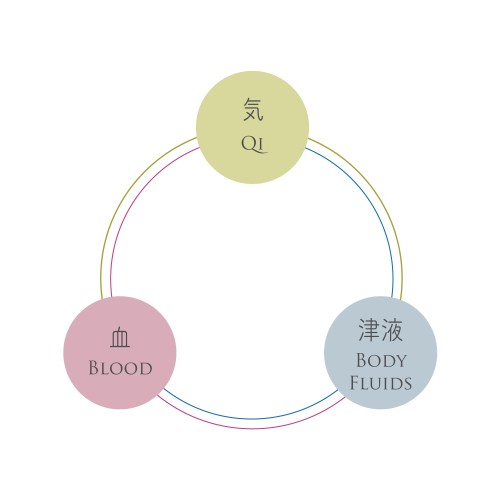There are two types of disease: organic and functional
An organic disease is a physical abnormality in the organ itself, such as inflammation, tumour or cancer, which results in symptoms and illness.Tests always find the abnormalities that cause the disease.
A functional disease is a condition in which there are no abnormalities in the organs but only subjective symptoms.As there is nothing wrong with the organ itself, various tests cannot find any abnormalities that cause symptoms. In many functional diseases, symptoms appear when the organ’s natural functions are too strong or too weak, for example, due to an imbalance of the autonomic nervous system. Symptoms are less likely to occur when concentrating on something or when sleeping, and can be made better or worse by stress or changes in the environment.
An acupuncture treatment specialises in the treatment of functional disease symptoms and illnesses.This is because we use the theory of Qi, blood and water to improve the flow of blood and water in the body and the function of the organs’ original systems to balance the body.
For example..
For example, if the abdominal or stomach pain is due to an autonomic disturbance.If the cause of the pain is not clear after a visit to the hospital and the pain is caused by stress.In acupuncture, we check if the stomach is cold or too watery, select the acupuncture points and insert acupuncture needles.Some people’s stomachs start to move during the treatment.
what is the qi, blood and water we are treating?
The generation and circulation of qi, blood and fluids is human life itself. If it is balanced and harmonious, the human body is in a healthy state, otherwise it becomes ill. The purpose of acupuncture treatment is to ‘keep the generation and circulation of Qi, blood and fluid in a good state’.
Qi
Qi is flowing energy with various actions. Ancient Chinese thinkers discovered the existence of qi by observing flowing clouds, mist and haze, and recognised that life is alive and active because of its action. The water cycle is represented by clouds raining down to moisten the fields, rivers flowing down to the sea, and steam rising up to the sky.The human body is also a model of the natural world, with orderly qi flowing through it, supporting life activities.
Blood
The blood is synonymous with blood in general. In acupuncture medicine terms, blood is made up of the nutrient-rich components qi and blood fluid. The tubes that the blood flows in are called blood pulses.
Water (Tsu Fluid)
The term ‘Tsu” is a general term for the physiological aqueous fluids in the body, and refers to the fluids and physiological secretions inherent in the various organs. Tsu is clear, non-sticky and mainly moistens the body surface and is involved in the regulation of body temperature. It is also excreted from the body in the form of sweat and urine. “Fluid” is sticky, flows slowly through the body and moistens the bones and marrow. It moistens the membranes of the eyes, nose and mouth, and the skin.
Simply put
Simply put, it helps people to eat well, promotes digestion and absorption of the food they eat, and helps the body to better circulate that energy. This is what it means.
In Oriental medicine, the human body is viewed in the same way as the cycles of the natural world.So, even if something cannot be found in a hospital examination, acupuncture has a reason and a treatment method for it.If the cause of the problem is not clear after a visit to a hospital, or if there is no improvement after taking medication, you may be able to find the cause of the problem by seeing an acupuncture clinic.
Also, even in the case of organic diseases where the cause is clear from tests, acupuncture can boost the immune function and, in combination with medication, increase the effectiveness of treatment and reduce side effects.

